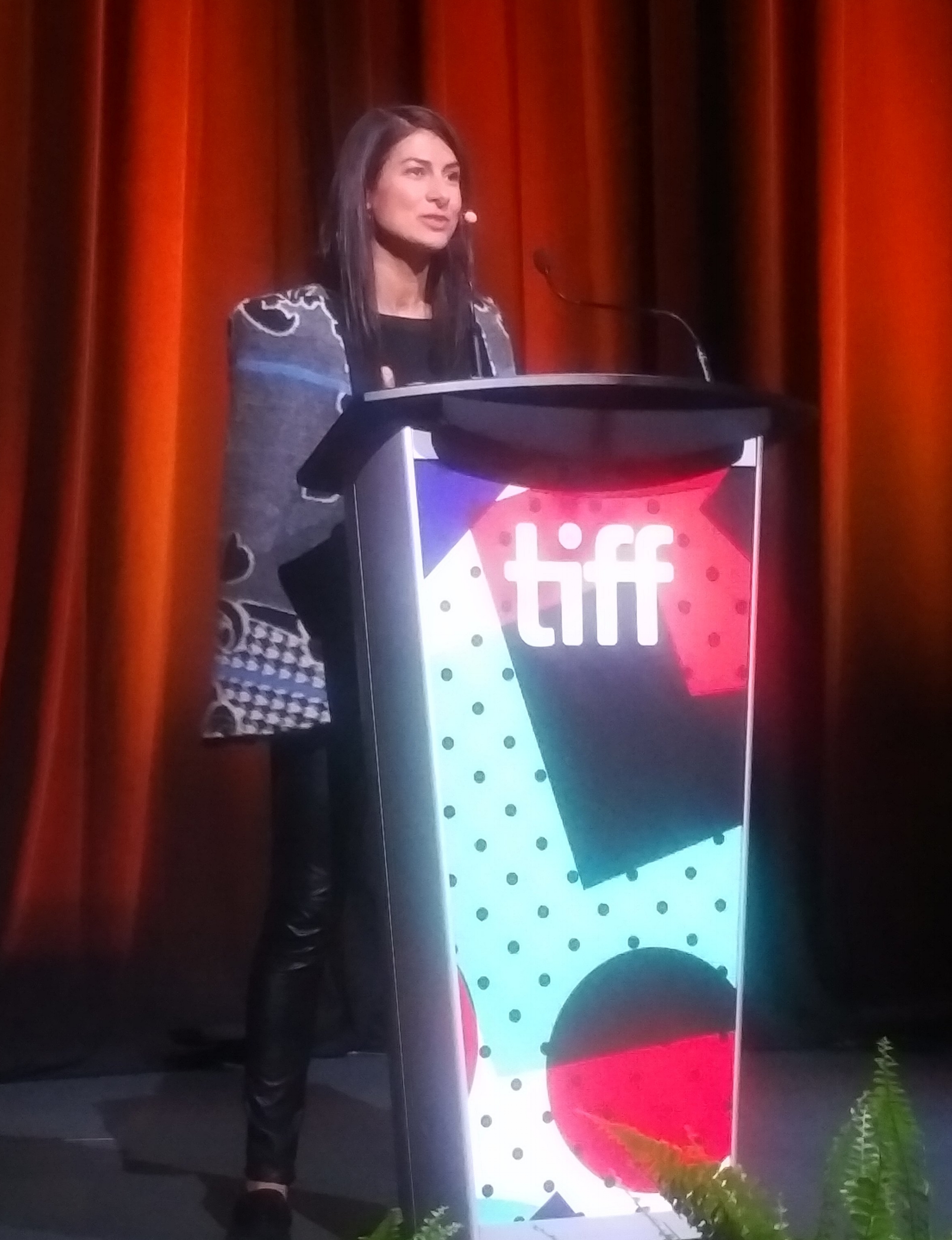It's a good thing to continue learning. I have been in the documentary industry for more than three decades. This past week I had the opportunity to refresh my thinking and learn some new perspectives about the craft, the business and documentary education.
The occasion was the 9th annual TIFF Doc Conference, part of the Industry component of the Toronto International Film Festival. Moderated ably by programmers Thom Powers and Dorota Lech who is also associated with Toronto's Hot Docs festival, the day featured a swift moving and well paced series of interviews, panel discussions and key note speakers.
Anjali Nayar, director Silas
Anjali Nayar a Canadian filmmaker now based in Africa presented a keynote address on ethical considerations surrounding appropriation. She rhetorically posed the all important question: how do I as a first world person of privilege tell stories out of Africa? In a thoughtful way, Nayar, whose current film Silas premiered at TIFF17, both defended her story telling liberty and underscored the collaborative approach, empathy, listening, open mindedness and respect that she must be sure to employ abroad. She called for telling each other's stories "with imagination and skepticism." Without backing down from her right to free speech, she drew attention to moments in her own work where she thought she might have done better.
Nayar examining her conscience about representation of the so-called developing world
Filmmakers Brett Morgan Jane & Kurt Cobain - World of Heck ,Denis Côté and Sam Pollard traced the arc of their careers and motivation in interviews. Pollard who had a distinguished career as an editor with the likes of director Spike Lee and who teaches at NYU is now primarily a director. His latest film I Gotta Be Me about the singer-dancer-entertainer Sammy Davis Jr. had its premiere at TIFF17 and will be seen on the American Masters strand on PBS.
Morgan Spurlock who rose to fame with his Supersize Me doc was joined on stage by the team from his company Warrior Poets, Entertainment Weekly and A&E network that are responsible for a new pop culture doc series that will launch soon across A&E media platforms. Spurlock emphasized his creative and entrepreneurial bent. He and his colleagues stressed that the digital space provides documentary producers with unprecedented opportunity.
Moving beyond specific projects, financier Geralyn Dreyfous of Imact Partners and the film & TV career consultant Peter Broderick proffered useful tips about private financing for documentaries and the approach one might undertake to ensure longevity and a decent income in the independent documentary production industry.
Consultant Peter Broderick
As a filmmaker and educator at Toronto's Seneca College, I felt my time at the 2017 TIFF Doc Conference was well spent. Each year's conference has its strengths, but this one avoided transparent, shallow promotional gambits that can sometimes mar such industry affairs. Each session was distinctly thoughtful.
As for improvement for the 10th annual TIFF Doc Conference in 2018, one might suggest a better mixing up of American-Canadian-international speakers. As in other years at this particular event, it occasionally seemed we were attending a conference in New York or Los Angeles because Canadian or international context was missing for significant stretches of time. That being said, it was an informative day and I look forward to next year.




